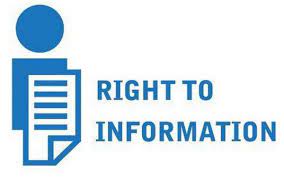Right to Information (RTI) requests in 2019-20:

The Centre has only rejected 4.3% of all Right to Information (RTI) requests in 2019-20, the lowest ever rate, according to the Central Information Commission’s annual report.
- However, almost 40% of these rejections did not include any valid reason, as they did not invoke one of the permissible exemption clauses in the RTI Act, according to an analysis of report data by RTI activist Venkatesh Nayak.
- This includes 90% of rejections by the Prime Minister’s Office.
- Public authorities under the Central government received 13.7 lakh RTI requests in 2019-20, out of which 58,634 were rejected for various reasons.
- Rejection rates have fallen since the 13.9% rate in 2005-06 and have been steadily trending downwards since the 8.4% spike in 2014-15. In 2019-20, they hit their lowest level so far.
- The Home Ministry had the highest rate of rejections, as it rejected 20% of all RTIs received. The Agriculture Ministry’s rejection rate doubled from 2% in 2018-19 to 4% in 2019-20.
- The Delhi Police and the Army also saw increases in rejection rates.
- The RTI Act allows public authorities to reject RTI requests on a number of grounds, ranging from information that would endanger life and safety to that which involves irrelevant personal information, Cabinet papers, foreign governments, copyrights, or sovereignty, security, and intelligence matters.
- Public authorities are expected to cite the relevant clause of the Act to invoke the exemption.




